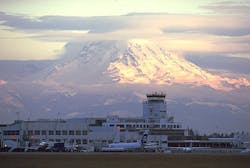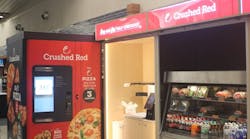A proposal to raise the wages of workers in and around Seattle-Tacoma International Airport has drawn national attention -- and big cash is starting to follow.
There are just 11,852 registered voters in the city of SeaTac eligible to vote Nov. 5 on an initiative setting a $15-an-hour minimum wage for thousands of airport, hotel, car-rental and other employees. (The state's minimum wage is $9.19 an hour.)
Supporters and opponents of the measure already have raised $440,000 combined for the looming battle -- about $37 per voter.
Common Sense SeaTac, a business-funded political-action committee seeking to defeat the union-backed measure, had raised more than $243,000 as of Thursday, according to reports filed with the state Public Disclosure Commission (PDC).
That includes $75,000 from the American Car Rental Association, $50,000 from a PAC representing state hotel owners and $15,000 each from Alaska Airlines and the Washington Restaurant Association.
Supporters of the wage law, organized as Yes! For SeaTac, have raised more than $197,000. That includes $50,000 from the state council of the Service Employees International Union and $25,000 from the International Brotherhood of Teamsters.
In addition to a $15 minimum wage for airport-related businesses, the initiative would require employers to provide paid sick leave and offer jobs to part-time workers before hiring new full-time employees. If an affected business were sold, the new owner would be required to retain existing employees for at least 90 days.
Those requirements could be waived if a business agreed to a collective-bargaining agreement with a union.
Supporters of the law say airport workers deserve a living wage and argue it would benefit businesses where those workers shop.
"People are very aware of the fact that SeaTac could thrive if the workers who work at the airport had a little more money in their pockets," said Heather Weiner, spokeswomen for the initiative campaign.
But opponents argue the measure would harm businesses and lead to fewer jobs for low-wage workers.
"There are a lot of repercussions. This is the broadest sweep of any ordinance like this that's been tried around the country," said Don Stark, a business lobbyist working with the opposition campaign.
Jim Brunner: 206-515-5628 or [email protected]. On Twitter: @Jim_Brunner
Copyright 2013 - The Seattle Times



